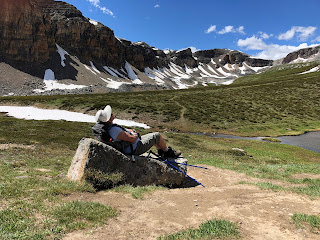Today, on the BWL Author Blog, I write about my recent field trip that helped make my current novel more authentic. https://bwlauthors.blogspot.com/


Today, on the BWL Author Blog, I write about my recent field trip that helped make my current novel more authentic. https://bwlauthors.blogspot.com/
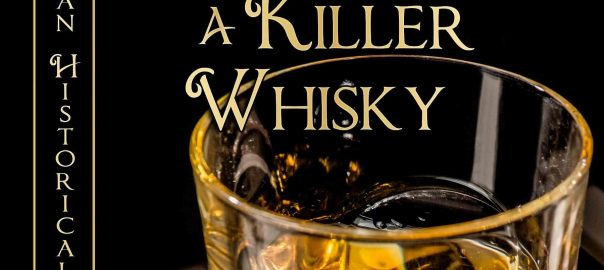
When I heard that BWL Publishing planned to publish a series of Canadian historical mystery novels, I was eager to get involved. In 2021, I wrote a mystery short story set in my home city, Calgary, Alberta, during the second and deadliest wave of the 1918 influenza pandemic. I showed the story to a writer-in-residence, who suggested I turn it into a novel. This intrigued me, but I polished the short story and submitted it to the Crime Writers of Canada 40th anniversary anthology. My story, A Deadly Flu, was accepted and published last spring in Cold Canadian Crime.
But BWL’s plan prompted me to consider how I could expand my 4,500 word story into a 75,000 word novel. I mulled ideas and decided I’d add three new characters to the story: two suspects and female protagonist, Catherine. I’d still keep my original detective protagonist as a secondary narrator. He and Catherine would both have personal story arcs, including a romantic subplot. WWI would also feature more prominently in the novel, as the story built to the November 11th Armistice.
Confident these additions would give the story sufficient fodder for a novel, I asked BWL if I could write one of the books. The concept for the BWL Canadian Historical Mystery Series is that twelve different authors or author-pairs would write novels set in our ten Canadian provinces and two of our territories. Authors would have free rein over what to write, as long as the novel features a crime, takes place during a real historical time period, and is 70,000-80,000 words to keep the book sizes uniform. BWL assigned me the story set in my home province of Alberta.
The series will be published over a period of almost two years. Since I won’t have time to start writing my novel before this summer, I asked for the last publication date, December 2024. The first Canadian Historical Mystery comes out this month. Rum Bullets and Cod Fish by H. Paul Doucette, set in Nova Scotia, sounds like roaring fun. “The year is 1924 and Prohibition is spawning a new breed of criminal.” An undercover investigator tracks the ringleaders illegally transporting liquor to the US mob.
Since BWL is promoting the whole series right away, they asked each author to provide a title, story blurb, and suggestions for cover images. Luckily, I have a framework for my novel — my short story and my ideas for expansion. From this, I came up with a blurb. I also needed a new title. My short story title, A Deadly Flu, was a wink at my first novel, A Deadly Fall. For a novel I’d want something to distinguish the two books. Words like dead, murder, kill, secrets, and their variations are popular for mystery titles. I also find concrete nouns in titles conjure strong images. The weapon in my story is whisky laced with a lethal drug. I settled on a title, A Killer Whisky.
During this process, I discovered a potential problem with the word ‘whisky.’ Ireland and the USA spell whiskey with an ‘e,’ unlike Canada and the rest of the world. My research suggests this might have been due to Ireland’s desire to distinguish its whiskey from Scottish whisky. Did Canada adopt the Scottish spelling because many of our early explorers and fur trade merchants came from Scotland, while whiskey became popular in the US with waves of Irish immigration? That’s my best guess.
I debated changing my title to one that wouldn’t confuse American readers, or using US spelling, or making the poisoned drink a non-spelling-controversial liquor, like rum. But whisky is so concrete that I can almost smell it when I hear the word. It’s also infamous in western Canadian history. Our fur trade is often called the whisky trade, which caused alcoholism problems for indigenous people. In the end, I decided to stay with whisky and Canadian spelling. Early in the novel, I’ll have a character point out the difference between the countries, so US readers won’t think I can’t spell.
For images, I suggested a bottle or glass of whisky, as well as a piano. I plan to start the novel with my protagonist playing the instrument and music will feature through the story. Michelle Lee, BWL’s cover designer, worked with my suggestions and created a stunning cover. I love the golden whisky colour against the black background. I can hear the clashing chord as the glass hits the piano keys. The glass of whisky stops the music, like murder.

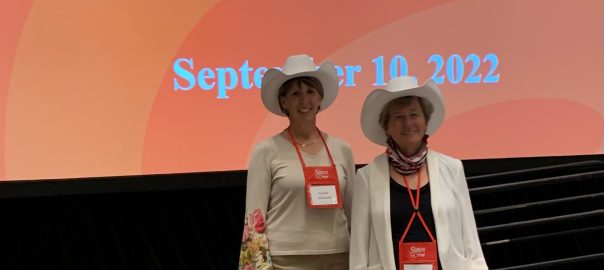
Bouchercon Calgary’s website is live! Check out some of the authors who will be here in October, 2026. I’m excited to be part of the organizing team. https://bouchercon2026.com/ The photo shows co-chair Pamela McDowell and me presenting Calgary’s bid at Minneapolis Bouchercon last September.
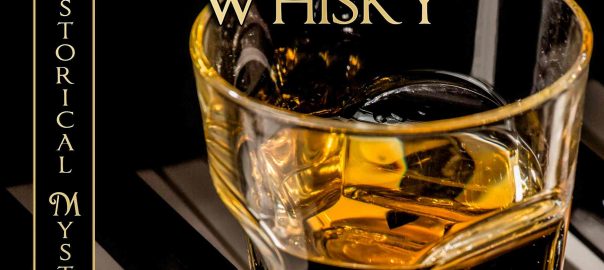
Today, on the BWL website, I blog about my next novel — a historical mystery. https://bwlauthors.blogspot.com/
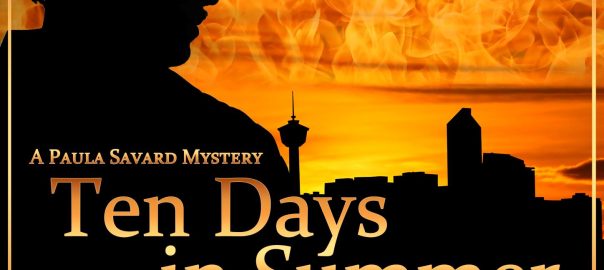
I view audiobooks as a wave of the present. Many of my friends like them for multi-tasking. They listen to books while driving, exercising, or cleaning the house. Book-lovers who develop eye problems with age find audiobooks a godsend. So I was thrilled when BWL was awarded funding to produce a group of Accessible Audiobooks and chose my novel, Ten Days in Summer, to be part of the group.
BWL’s next step was to find a suitable narrator for Ten Days in Summer. They selected Janice McNally, an Ontario narrator and producer. Janice has visited Calgary and attended the Stampede, which forms the backdrop for my novel. She produced a fifteen minute sample for us to approve. BWL and I agreed she sounded great and spoke clearly. Then Janice got down to work.
Partway through the process, she contacted BWL with a question about how to pronounce the surname of one of my characters, Cynthia Hawryluk. Janice had looked this up on the internet and found several examples, each with a slightly different pronunciation. I’d taken the name from a doctor I had in Montreal and pronounced it like this: Haw (rhymes with cat’s paw, accent on this syllable) ry (short i sound) luk (luck).
Now I did an internet search and discovered that most websites pronounce Hawryluk similar to this. I don’t know if my doctor anglicized his name or if I pronounced it wrong all these years. I gave Cynthia this surname because Alberta, the novel setting, has many Ukrainian residents and I assumed the name was Ukrainian. The internet advised me that Hawryluk is equally or more often Polish.
The bottom line for me was Cynthia Hawryluk is a secondary character in the novel and her surname is only mentioned a few times. Since I’m not invested in the pronunciation, I advised Janice to go with the common one for readers familiar with the name.
I was impressed with Janice’s and BWL’s attention to this detail. When Janice finished her work, BWL asked me to listen to the whole audiobook to check for errors. I’ve never read any of my novels after they were published and relate to actors who never watch their movies. Ten Days in Summer was released in 2017. Since then, I’ve moved on to three more novels. I cringed at the prospect at looking back at my writing.
At first it felt strange and uncomfortable listening to someone else’s voice telling my story. But less than a chapter in, I got used to it and felt Janice’s voice nailed my Paula narrator. I enjoyed revisiting the story, chuckled at my old jokes, and found minimal errors. Three were different pronunciations for friends’ names in the acknowledgments.
Janice posted her view of the experience from her end.
Listening to my novel five years after its publications gave me a broader view of the story. Themes popped out. I realized Ten Days in Summer might appeal to readers interested in the following:
Whodunnit stories
Psychology and effects of hoarding
The Calgary Stampede – Yahoo!
Social class
Ordinary people who murder
Family relationships
Mothers and daughters
Trust
How human connection eases the pain
Baby boomers
Grown children and aging parents
Finding love and romance in middle age
I’m currently working on the fourth novel in my Paula Savard Mystery series and was thinking it would be the last. But, to my surprise, listening to this earlier series book, Ten Days in Summer, gave me an idea for a new direction for Paula, should she and I choose to take it.
If you’re looking for a Christmas present, here’s a bonus offer from audible.
Happy Holidays and my best wishes for a happy and healthy 2023.

Today, on the BWL website, I blog about my experience of having my novel, Ten Days in Summer, produced as an audiobook. Here’s narrator Janice McNally’s view of her side of the experience. For some reason, I wasn’t able to open my blog post on the BWL website. You might have more luck. https://www.facebook.com/groups/bwlbookswelove/posts/2229715693873905
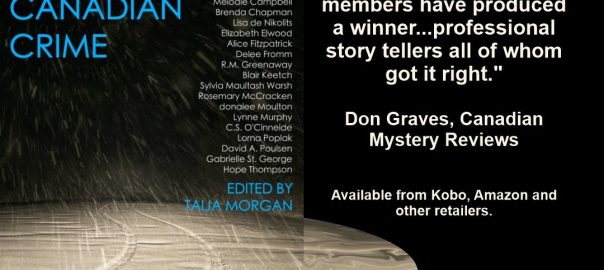
This week I had an interesting chat with Erik D’Souza about my short story, A Deadly Flu, which appears in the Crime Writers of Canada Cold Canadian Anthology. We got into lots of other things. You can watch it on Youtube. https://youtu.be/l0ce-9aY320
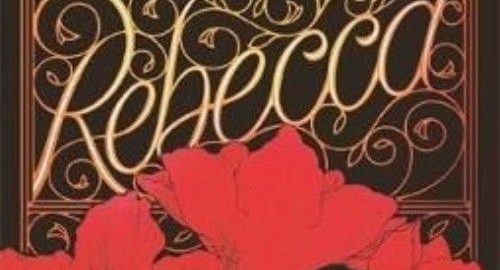
My book club chose the classic novel Rebecca by Daphne du Maurier for our October meeting. This was the third time I’d read the book. I’ve loved it each time for slightly different reasons.
I was in my twenties when I first read this story of a young woman who marries a wealthy older man she meets on a holiday in Monte Carlo. His late wife, Rebecca, looms larger-than-life and haunts the tale from beginning to end. Gradually the story builds to a series of plot twists. I didn’t see any of them coming, yet I instantly recalled clues the author had planted along the way to make the surprises completely believable. The only author I’ve read who did this almost as well was Agatha Christie. Literary writers often dismiss such twists as mere plot. In Rebecca, every twist is embedded in character. If the story narrator, her husband Maxim, Rebecca, and all of the secondary characters had been different people, the story and twists wouldn’t have happened exactly as they did.
About twenty years later, I started writing mystery novels. Whenever the subject of favourite books came up, I’d say that I couldn’t choose my favourite as a reader, but Rebecca was the novel I wished I’d written, mainly for the author’s handling of surprise. Perhaps this prompted me to read Rebecca a second time. By then, I’d seen several movie versions and remembered all the twists, but I still found myself gripped by the suspense of what was to come. Fans will recall a scene where the narrator breaks a valuable figurine. As the narrator struggles to cover her action up, I was on the edge of my seat, worried for this sympathetic character.
This third time reading Rebecca, I was mainly drawn in by du Maurier’s writing. The novel struck me as a cross between two other classics written by women, Jayne Eyre by Charlotte Bronte and Pride and Prejudice by Jane Austen, with mystery and suspense thrown into the mix. Rebecca features the grand passion and gothic qualities of Bronte’s story, with subtle Austen-like touches of social observation and humour. All three books are about women who fall in love with men who are far superior to them in wealth and social status. I interpret each of the stories as showing how the woman becomes the man’s equal. Perhaps this partly explains why these novels resonate with modern readers.
In addition, on third reading, I realized that Rebecca contains a number of life lessons, about such things as not making assumptions about other people, assuming you know what they are thinking, and speaking out for yourself. In middle age, I read a popular book on cognitive therapy, which is commonly viewed as the most effective psychotherapy method. Everything in the book was already there in Rebecca. I wonder if this is why I easily grasped the therapy concepts and if, subconsciously, I applied them to my life after reading Rebecca when I was young.
Our book club discussion leader also brought up some modern interpretations of Rebecca that I hadn’t heard before. Maybe I’ll grasp them if I read the novel a fourth time. You can dive into Rebecca forever it seems and surface with something new.
When I reached the end of the novel last month, for the third time, I decided to go out on a limb say, Rebecca isn’t only the book I wish I’d written, it’s my favourite novel ever. Admittedly, I’m the only member of my book club who rated it this high. A couple of people didn’t like it. Others had mixed feelings. A surprising number hadn’t read the book before. Nobody predicted the twists on their first time. Rebecca is worth reading for that reason alone, and for so many more

Today, on the BWL Author Blog, I write about my book club discussion of Rebecca by Daphne du Maurier. https://bwlauthors.blogspot.com/

Yesterday I flew home from a trip to Minneapolis. On November 12th I leave for a three-week holiday in Mexico. This gives me a two-month window to write draft # 3 of my novel-in-progress. I have to complete this work to make the deadline for the novel’s scheduled release in September 2023.
It’s a challenge for me to think of my writing as work, since I don’t come close to making a living from it. But I have to do this in order to finish a long project like a novel. Otherwise I’ll let other activities completely consume my time. I wrapped up the first draft of this novel in late May and have given the book little thought since then. A break of almost four months should be good for returning to the story with fresh eyes. I don’t regret my travels to Ireland and Ontario and warm summer days spent hiking, biking and hanging out with family and friends, when I could have been writing.

While it’s hard to drag myself back to the computer, I know from numerous past experiences that once I start I’ll soon be into the writing groove again. This helps me avoid procrastination and plunge in, as I would into cold water. Once I’m swimming in the story, I’ll need to avoid distractions and limit them to important matters like family, friends, exercise, and volunteer work. Turning off my instant email notification will be essential. I’ve taken on a commitment to co-chair Calgary’s committee to host the Bouchercon mystery convention in 2026. It will be tempting to get sidetracked into concrete organizing tasks that can feel easier than pulling characters out of the air and resolving plot glitches.
I did use my summer time for some research relevant to the novel. The first draft unexpectedly veered into areas outside my knowledge zone. One of these was the opioid crisis. Drug dealer killings appear frequently in current mystery novels, but I’d thought the subject wouldn’t interest me. I prefer to write about ordinary people who kill for personal, social, or psychological reasons; people who might be me or a friend driven by a particular situation. But people like this are the drug dealers in my novel-in-progress. They operate a low-key business out of a bicycle store. During the summer, I read two excellent books on Canada’s opioid crisis and now feel capable of handling the topic in a novel.
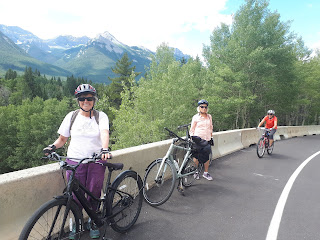
This new book also gets more into police work than the first three novels in my Paula Savard Mystery Series because I made two police officers point of view narrators. This fall I hope to fit in a research visit to Calgary police headquarters and will look for a beta reader or consultant knowledgeable in police work, without letting this research distract me from writing.
For my last two novels, I discovered a useful trick – those mornings that I wake up early, rather than lie in bed drifting in and out of consciousness, I force myself up, make coffee, turn on my computer, and write while the sun rises outside my window. I’m amazed by how much I can accomplish before the day’s usual activities get started.
In short, I find the key to writing novels is to treat them like work. Don’t wait for mood and inspiration. Grab your time at your writing desk, sit down, and do it.
